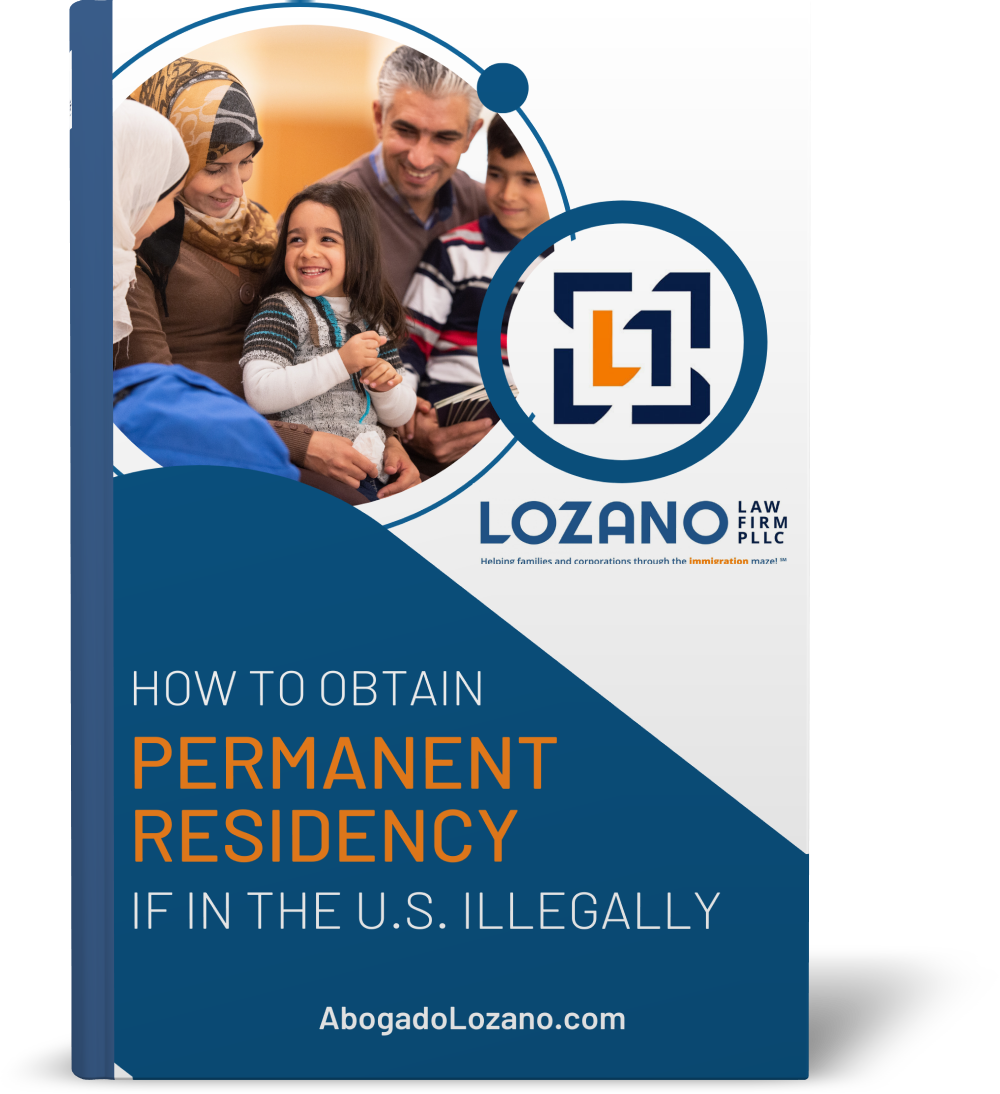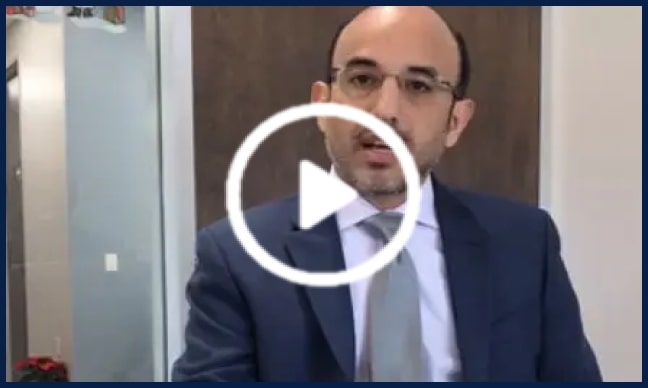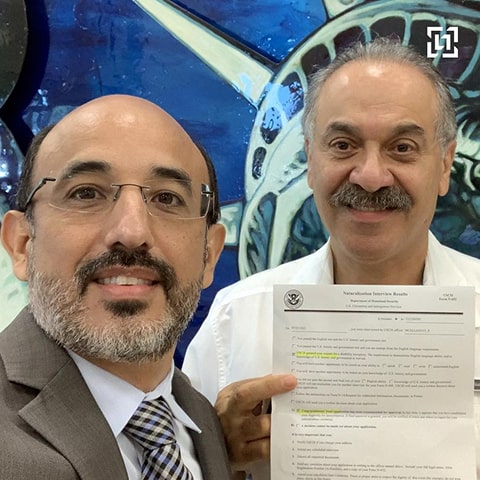Military Parole in Place or MIL PIP is a unique provision within the immigration system specially designed for the militant context. It allows certain non-citizen families of U.S. military personnel to apply for temporary permission to stay in the country.
If you were part of a particular group in the military ready for active duty and then left the service, you would have a good record. A voluntary separation from the military with a good track record often results in an honorable discharge. It is the most favorable type and indicates that the individual served faithfully and performed their duties satisfactorily.
The Military Parole in Place holds the potential for essential benefits and could be a stepping stone toward obtaining permanent resident status. Therefore, understanding these criteria is very important. Here is an overview of the MIL PIP in the United States.
If you’re hoping to apply for MIL PIP, you’re going to need the services of an experienced immigration attorney to guide you through the process. We explore the MIL PIP policy below and explain everything you need to know about the requirements and application process.
Board-Certified Immigration Lawyer: Alfredo Lozano Of Lozano Law Firm
As a first-generation American, and a former Marine, our founder and leading attorney Alfredo Lozano has a special connection to the hard-working people who are either currently serving in the Armed Forces or who are now veterans, and seek our firm’s legal help for their immigration issues. At Lozano Law Firm, we serve the communities of San Antonio, Eagle Pass, Laredo and San Angelo, Texas, with professional legal representation, using our skill and knowledge to create immigration solutions for individuals, families, and corporations.
As attorneys specializing in immigration and nationality law, you can feel confident that you’re in excellent hands when choosing our firm. To schedule your first case evaluation, call our law office today at (210) 899-2290.
Our Immigration Law Firm has tremendous experience with MIL PIP. Many of our clients are service members, and many of our office locations are near Military Bases. As such, our law firm has had many years of exposure to Military Immigration Programs, such as PIP.
Our Service Members are usually stationed at:
- Goodfellow Air Force Base (San Angelo, TX)
- Lackland Air Force Base (San Antonio, TX)
- Laughlin Air Force Base (Del Rio, TX)
- Randolph Air Force Base (Universal City, TX)
- Fort Hood Army Base (Killeen, TX)
- Fort Sam Houston Army Base (San Antonio, TX)
- Camp Bullis Army Base (San Antonio, TX)
- Camp Mabry Army Base (Austin, TX)
- Corpus Christi Army Depot (Corpus Christi, TX)
**If you live on base or near the base your designated USCIS Interview office would be in San Antonio, TX, where we have our principal office.
What Is MIL PIP?
In 2013, the Obama administration established the MIL-PIP policy, also known as discretionary parole. Typically, undocumented immigrants in the United States don’t qualify for an immigrant Visa or Green Card unless they leave the country and go through consular processing.
However, MIL PIP allows family members of a current or former member of the Armed Forces to adjust their immigration status and apply for a Green Card without leaving the country, even though they entered the United States illegally.
The MIL-PIP policy is a tremendous benefit for military families, but the United States Citizenship and Immigration Services (USCIS) only grants parole on a case-by-case basis, either for “public benefit” or humanitarian reasons. Upon approval, the service member’s family may remain in the United States legally for one year, with complete protection from the threat of deportation.
Eligibility Criteria For Military Parole In Place
Of course, MIL PIP has specific eligibility requirements that applicants must meet to obtain parole. First, lawful permanent residents of the United States are not eligible to apply. Only certain family members of military personnel qualify for parole.
You may be eligible for MIL PIP in 1-year increments if you are one of the following service members or are the spouse, widow(er), parent, son, or daughter of one of the following service members:
- A service member of the National Guard or Reserves
- An active-duty member of the United States Armed Forces
- A military veteran who served on active duty or in the Selected Reserve of the Ready Reserve (honorable discharge only)
In addition, every family member that applies for MIL PIP will be subject to a criminal background check. Even families currently undergoing removal proceedings can request parole and may receive approval to adjust status.
If you have a family member who wants to apply for Military Parole in Place, they should have a close familial relationship with you. They must be either your spouse, parent, son, or daughter.
You can be eligible for PIP whether you’re an active-duty service member or a veteran. You must also be part of the U.S. military—in one of the divisions, including the Army, Navy, Marine Corps, or Air Force.
To qualify for MIL PIP, you must reside in the selected ready reserve, exemplifying a solid commitment to potential active duty. Additionally, you must possess an impeccable service record.
No dishonorable discharge is essential, as it represents the worst form of military separation and would disqualify you. Your service record in the always-on standby reserves should also be honorable.
There could be instances when you have completed your service and may no longer be on active duty or in the selected ready reserve. In this case, an honorable discharge or completion of service is essential.
Securing MIL PIP leads to various notable advantages. It can provide you and your family a pathway to enhanced opportunities and a better life in the U.S. You can benefit by applying for a green card to live permanently in the country.
Benefits Of MIL PIP Provision
The most prominent benefit of having Military Parole in Place is applying for a Green Card. It opens doors for you to transition from temporary to permanent resident status in the United States.
Another great advantage is the support provided by United States Citizenship and Immigration Services or USCIS. This benefit is beneficial for military personnel, veterans, and their families. You can navigate the immigration process with assistance, making the legal procedures more manageable.
With this provision, you can also prevent the severe consequences of an unlawful presence in the United States. Its system acts as a safeguard, protecting you from harsh immigration punishments, including deportation.
This safety measure protects you from legal penalties and offers you peace of mind. It helps you live without the constant worry of legal issues, bringing a sense of safety and steadiness to your life.
The parole clears your path for personal advancement and offers plenty of choices in your life. With this, you can secure your family’s education, career, or personal development in the United States through permanent residency.
If you’re considering applying for Military Parole in Place, engaging the help of a seasoned immigration attorney is essential. They can enlighten you about all the requirements and guide you through the application process.
Application Process For MIL PIP
Navigating the parole application process requires attention to detail and patience. Understanding the overall strategy is essential to ensure a seamless experience and avoid delays.
Interaction With The USCIS
The USCIS will guide you in the application process. They are responsible for providing the necessary guidance and resources throughout the different stages of your application journey.
Gather The Required Documents & Forms
Collecting all necessary documents is the foundation of a solid application. Ensure you assemble all required paperwork. It may include your birth certificate and proof of arrival and residence in the United States. It should also contain evidence of your service and other relevant documents.
Besides personal paperwork, you must also fill out and submit specific forms related to Military Parole in Place. The most crucial form is the Form I-131 Application for Travel Document.
Additionally, you may need to complete Form I-765 (Application for Employment Authorization) if you seek work authorization throughout the parole period. If you need clarification regarding the requirements, you can ask your attorney to help you prepare accordingly.
Timeline Of The Process
While going through the application process, it’s essential to set realistic expectations regarding the timeline for response and review by the USCIS. The application review process might take several months to complete and, in some cases, even longer.
Having an experienced immigration attorney during this process is very important. They can also guide you with the timelines and help you stay informed about the progress of your application.
Your lawyer can provide insights on effectively dealing with delays or issues, helping you address any challenges throughout the process. They can also help you determine other evidence and supporting documents for your application.
Evidence & Supporting Documents
The application process requires you to present evidence and various supporting documents. Thoroughly collected and given copies can be a decisive factor in the approval of your case.
Proof Of Service In The Selected Reserve
You must prove that you were a part of the Selected Reserve in your military service. This proof can include official military records, letters from commanding officers, or similar official documentation showing the service details.
Evidence Of Honorable Conduct
Alongside the proof of service, it’s essential to present documents that attest to an honorable discharge. You can verify this via discharge papers.
However, it may also come from letters of commendation, performance evaluations, or other official military documents. These records should provide an overview of your conduct during service.
Case-By-Case Documentation Requirements
Remember that the documentation requirements for parole can vary depending on the specifics of your situation. For example, you might need to provide additional proof if you served in a combat zone.
Always consult with your attorney to ensure you collect and present all necessary and beneficial supporting evidence. It will strengthen your application and the chances of approval.
Another relevant provision grants protection to military personnel’s family members. It is called the Deferred Action for Family Members of the Military. This option serves a similar objective but functions under a distinct set of rules and benefits.
Deferred Action For Military Family Members
Deferred action is a valuable option for family members of military personnel seeking temporary relief from potential deportation. You must understand the concept of deferred action, its eligibility and application process, and compare its benefits with Military Parole in Place.
Concept Of Deferred Action For Military Family Members
Deferred action is a discretionary measure by the USCIS that allows eligible individuals to remain in the country. This provision enables them to live in the United States without the risk of deportation temporarily. In the context of military families, deferred action can help protect the family members of service personnel from being removed from the United States.
Remember that obtaining deferred action does not confer immigration status or a path to citizenship. But the good thing is it provides temporary legal protection.
Eligibility Criteria & Application Process
To be eligible for deferred action as a family member of military personnel, you must satisfy specific criteria specified by the USCIS. These criteria often include:
A close relationship with the military service member (spouse, parent, or child).
- An absence of criminal history or national security threat.
- No previous record of immigration violations or deportations.
The application process typically involves submitting a written request for deferred action to the USCIS. You must also provide evidence supporting the familial relationship and other relevant documents.
It’s advisable to consult with an immigration attorney to ensure that you meet all requirements and accurately complete the process.
Comparing Deferred Action & MIL PIP
While both deferred action and military parole offer temporary legal protection for family members of military personnel, they differ significantly.
Deferred action primarily offers a shield from deportation, yet it does not confer legal immigration status on the recipients. On the other hand, Military Parole in Place has more to offer.
It confers an acknowledged status and opens up eligibility for certain supplementary benefits linked to immigration. It includes obtaining work authorization or initiating a Green Card application process.
Deferred action is more straightforward compared to MIL PIP. The process for deferred action requires a written request and supporting documentation.
However, this provision takes the lead regarding a total benefits package. Its comprehensive nature makes it a desirable option for military families searching for long-term security and opportunities.
Understanding these differences can help you know which option suits your specific situation. Consulting with immigration is also essential before making a final decision.
Can Family Members Of Individuals In The Armed Forces Obtain MIL PIP?
If you’re the immediate family of a military member with no permanent resident status in the United States, you can request MIL PIP from the USCIS. You’ll need to go to the USCIS office with jurisdiction over your primary residence and submit the following documents:
- Verification of your family relationship with a military service member, such as a marriage certificate or your children’s birth certificate
- Form I-131, Application for Travel Document
- Evidence that your family member is a current or former service member (i.e., a photocopy of their military identification card)
- Two identical passport-style photos
- Information illustrating any additional favorable discretionary factors that may work to your benefit
- If you’re a widow or surviving family member, proof of United States residence at the time of the service member’s death
How Long Does The MIL PIP & Adjustment In Status Process Take?
Up-to-date processing times for MIL PIP can be found on the USCIS website. This USCIS data solely reflects the time from the receipt of application to its completion. Remember, approval is not a guarantee.
Can You Work Legally In The United States If You Obtain MIL PIP?
If the USCIS has granted parole to you, you may be able to apply for employment authorization and obtain lawful United States employment. In addition, you’ll receive a Form I-94 arrival/departure record. Form I-94 is essential, as it’s legal evidence of your lawful entry into the United States and facilitates your status adjustment.
The Military Parole in Place provision aims to help non-citizen family members of U.S. military personnel, active and retired, temporarily stay in the country. It opens the pathway for a Green Card application and offers numerous other benefits.
You must have an active-duty service or veteran status, exemplary service record, and strong ties to the U.S. military divisions. The application process requires interaction with the USCIS, assembling crucial documents, forms, and other supporting evidence.
Another provision, Deferred Action for Family of Military Personnel, also offers temporary relief from deportation. With all of these, consulting an immigration attorney can guide you through these processes and to choosing the most beneficial option.
The MIL-PIP program significantly benefits families of military service members who live in the United States as undocumented immigrants. However, if you want to apply for MIL PIP or a Green Card, you’ll need a skilled immigration lawyer to serve as your legal advocate and fight for a favorable outcome in your case.
At Lozano Law Firm, we work hard to help families and corporations through the immigration maze. We take the attorney-client relationship seriously, so you can feel peace of mind that you’ll receive personalized attention and that your case will be our priority. Call Lozano Law Firm today at (210) 899-2290 to schedule your initial evaluation.






















